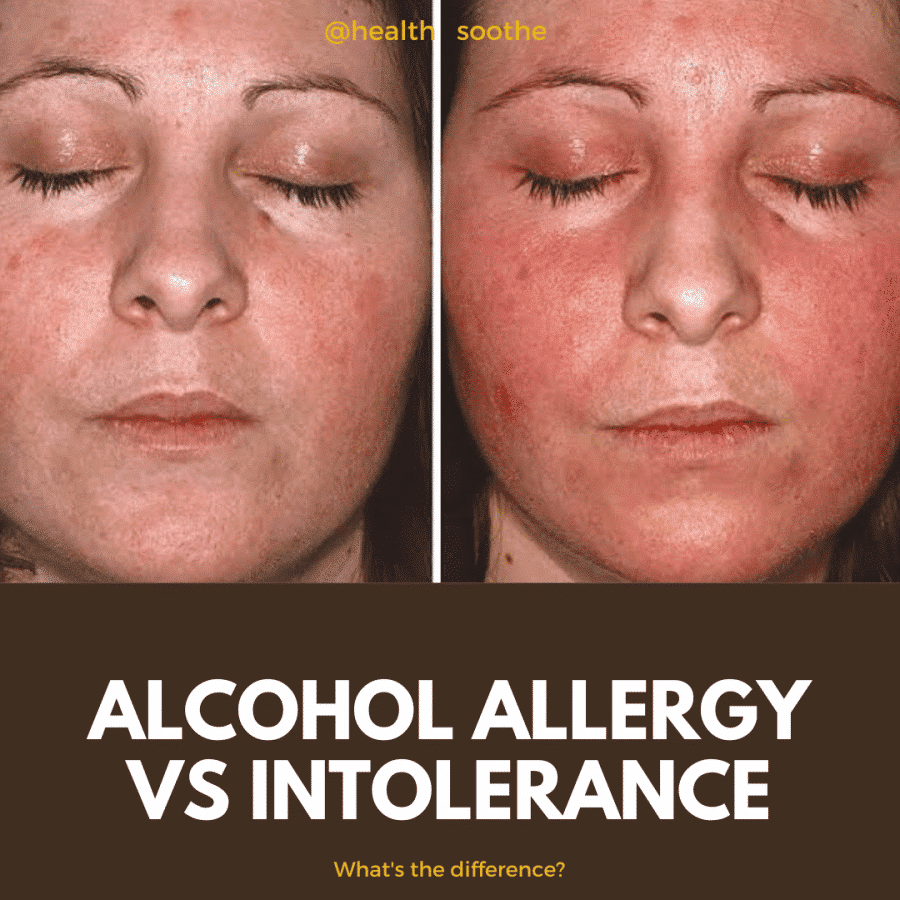Chances are you've heard of an alcohol allergy or intolerance before, but do you know the difference between them? Contrary to popular belief, there isn't such a thing as an "alcohol allergy." What people typically refer to as one is a form of intolerance that can cause unpleasant symptoms when drinking alcoholic beverages.
In this article, we'll discuss what exactly alcohol allergies and intolerances are and the differences between them to help better understand what signs and symptoms may present themselves in either situation. Understanding these conditions can be beneficial for anyone looking to lessen their exposure and prevent any potential flare-ups from occurring.
Alcohol allergy symptoms
An allergic reaction to alcohol is an emergent and severe condition that should not be taken lightly. Some of the symptoms of alcohol allergy you might experience if you have an alcohol allergy include facial flushing, shortness of breath, hives, a rash on your skin, itching, nausea and vomiting, chest pain, and low blood pressure.
In some cases, more severe reactions can lead to life-threatening disorders like anaphylaxis or angioedema. Should you experience any of these symptoms after consuming alcohol or foods containing alcohol ingredients, see a doctor immediately for medical advice and treatment.
Alcohol intolerance symptoms
It is much more common than an allergy; unlike the former, it is not life-threatening. Alcohol intolerance can cause mild to moderate symptoms, usually within a few minutes of consuming alcohol. These include facial flushing, nausea, headaches or migraines, lightheadedness or dizziness, heart palpitations or rapid heartbeat, fatigue, and difficulty breathing.
In some cases, you may also experience skin reactions like hives or itching, which can be caused by an underlying condition such as histamine intolerance. The severity of these symptoms will depend on how much alcohol has been consumed and how your body reacts to it.
Symptoms are typically indicative of alcohol intake and will generally dissipate once the alcohol has cleared from your system.
How to tell the difference between an alcohol allergy and an intolerance
The easiest way to tell the difference between alcohol allergies and intolerances is to look at the severity of your symptoms. If you experience any life-threatening reactions after consuming alcohol, such as anaphylaxis or angioedema, you will likely have an allergy. On the other hand, if your symptoms are more moderate, such as facial flushing or a headache, you likely have an intolerance.
It can be helpful to track what you eat and drink and how it makes you feel to help pinpoint whether or not you may have an intolerance. It will also help your doctor develop a more tailored treatment plan for managing your symptoms if needed.
Treatment for alcohol allergies and intolerances
The treatment for both alcohol allergies and intolerances will depend on the severity of your symptoms. If you have an allergy, it may be necessary to avoid all contact with alcohol altogether, while in some cases, medications such as antihistamines may also be prescribed.
If you have an intolerance, it may reduce or even eliminate your symptoms by avoiding certain drinks or keeping track of how much you drink. It would help if you remembered that while intolerance is not life-threatening, allergic reactions can be, so it's essential to get medical advice.
Tips for avoiding alcohol if you have an allergy or intolerance
If you have an allergy or intolerance, it is crucial to minimize your exposure as much as possible. It means avoiding any foods that contain alcohol ingredients and checking labels carefully before purchasing any products.
It's a good idea to ask questions when eating out in restaurants and bars about which drinks may be safe for you to consume. Additionally, if you choose to drink alcohol, do so responsibly and keep track of how much you're consuming to avoid exacerbating your symptoms.
Finally, if you're concerned about a potential allergy or intolerance to alcohol, it is vital to speak to your doctor for an accurate diagnosis and tailored treatment plan.
What are the risks of drinking alcohol with an allergy or intolerance?
If you have an allergy or intolerance to alcohol, it is crucial to be aware of the potential risks associated with drinking. For those with an allergy, there is the potential for severe or even life-threatening reactions if they are exposed to alcohol.
For those with an intolerance, drinking too much can cause symptoms such as nausea, headaches, and fatigue. It's also important to note that excessive and regular consumption of alcohol can lead to other health problems over time. Hence, it's best to limit your intake regardless of whether you are sensitive to it.
Finally, to get the most effective treatment plan, it's essential to speak with your doctor for an accurate diagnosis if you think you may have an allergy or intolerance.
In conclusion
There are vital differences between alcohol allergies and intolerances, including how they affect the body and how to tell them apart. Learning about these distinctions can help you determine the best course for managing your symptoms and reducing future exposure to alcohol if necessary.
It is also essential to speak with your healthcare provider for an accurate diagnosis and treatment plan, as well as follow tips for avoiding alcohol if you have a sensitivity to minimize any potential risks associated with drinking.



